Презентація на тему «French food» (варіант 2)
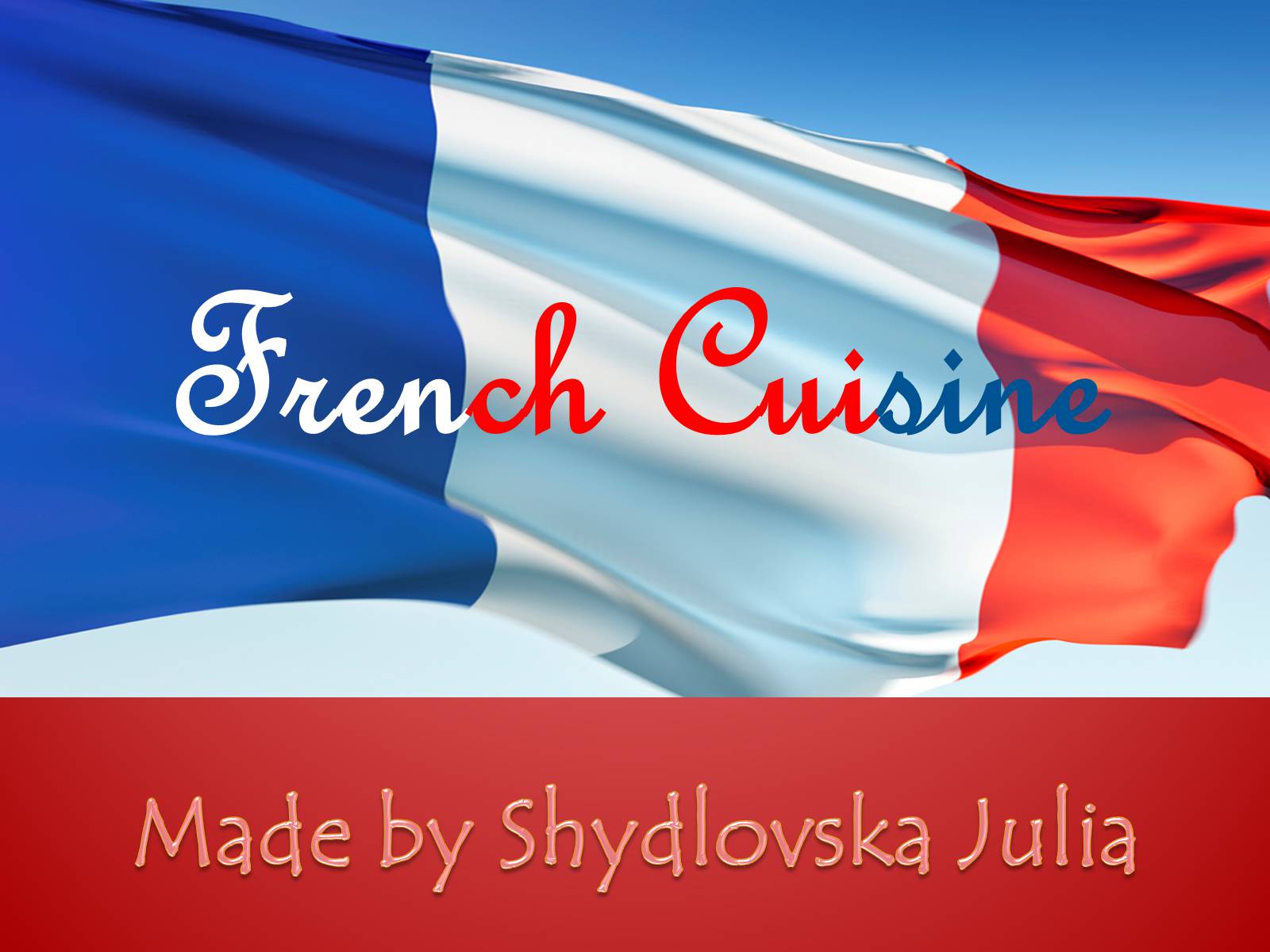
French Cuisine
Made by Shydlovska Julia
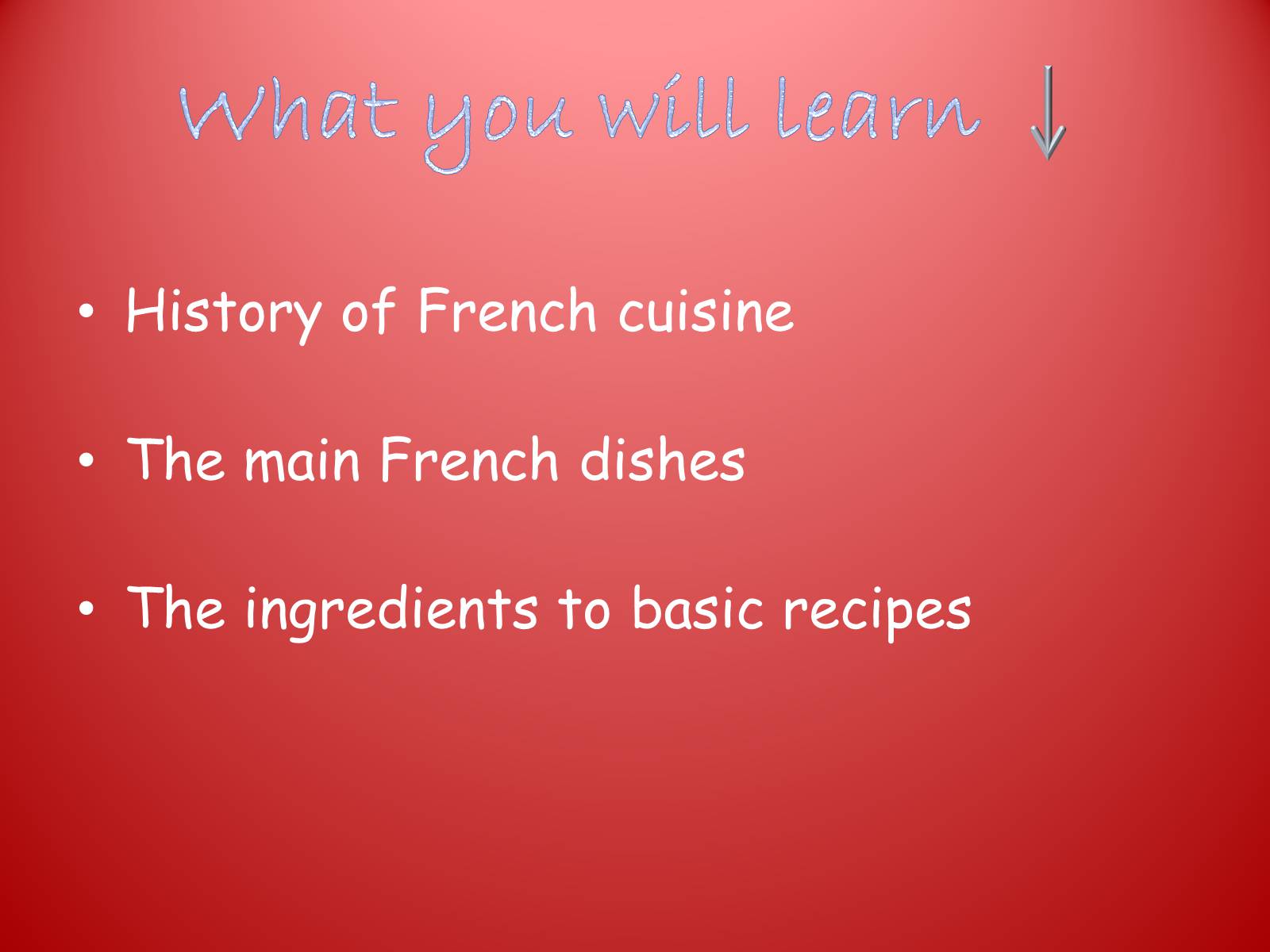
History of French cuisine
The main French dishes
The ingredients to basic recipes
What you will learn
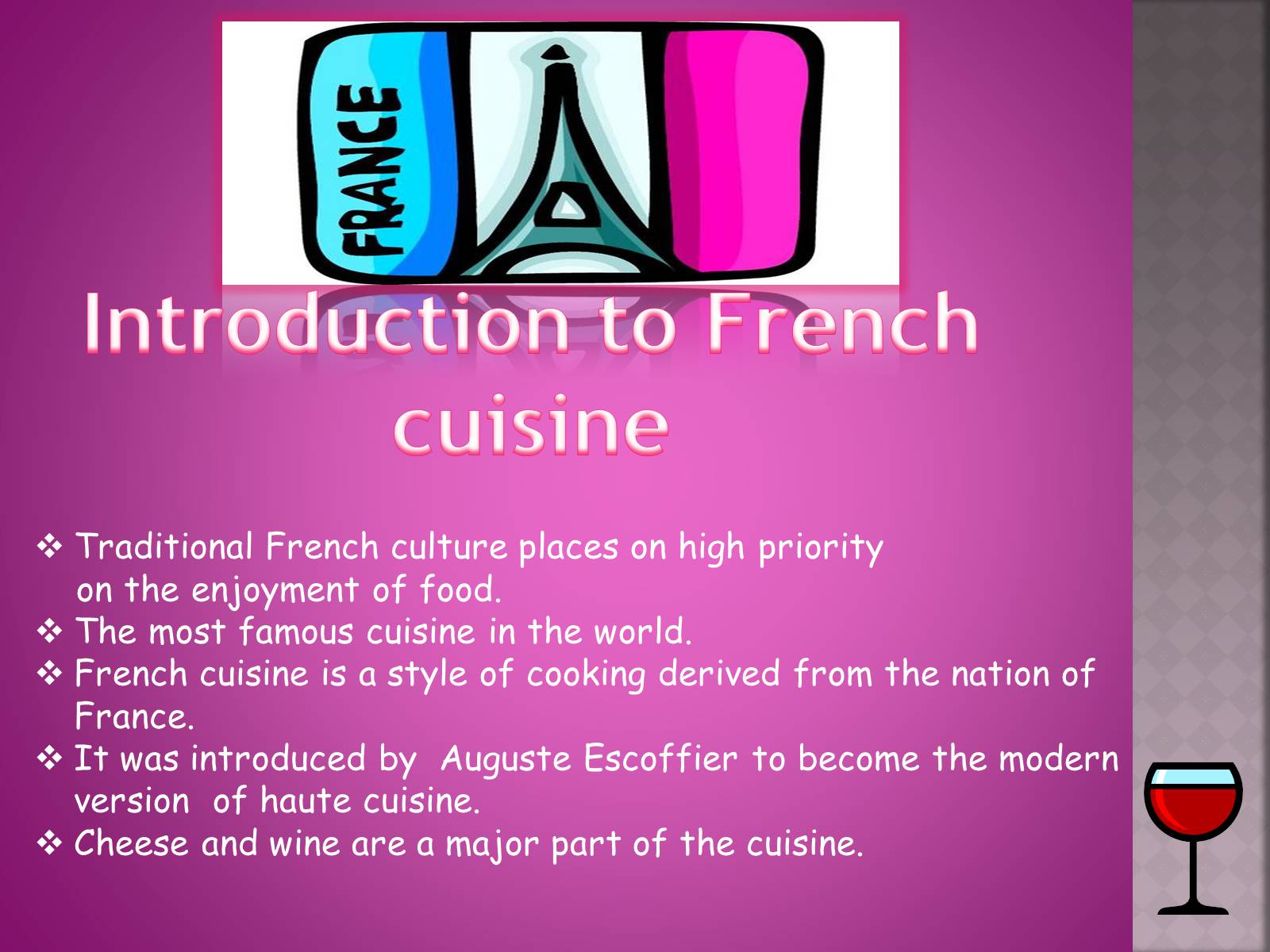
Traditional French culture places on high priority
on the enjoyment of food.
The most famous cuisine in the world.
French cuisine is a style of cooking derived from the nation of France.
It was introduced by Auguste Escoffier to become the modern version of haute cuisine.
Cheese and wine are a major part of the cuisine.
Introduction to French cuisine
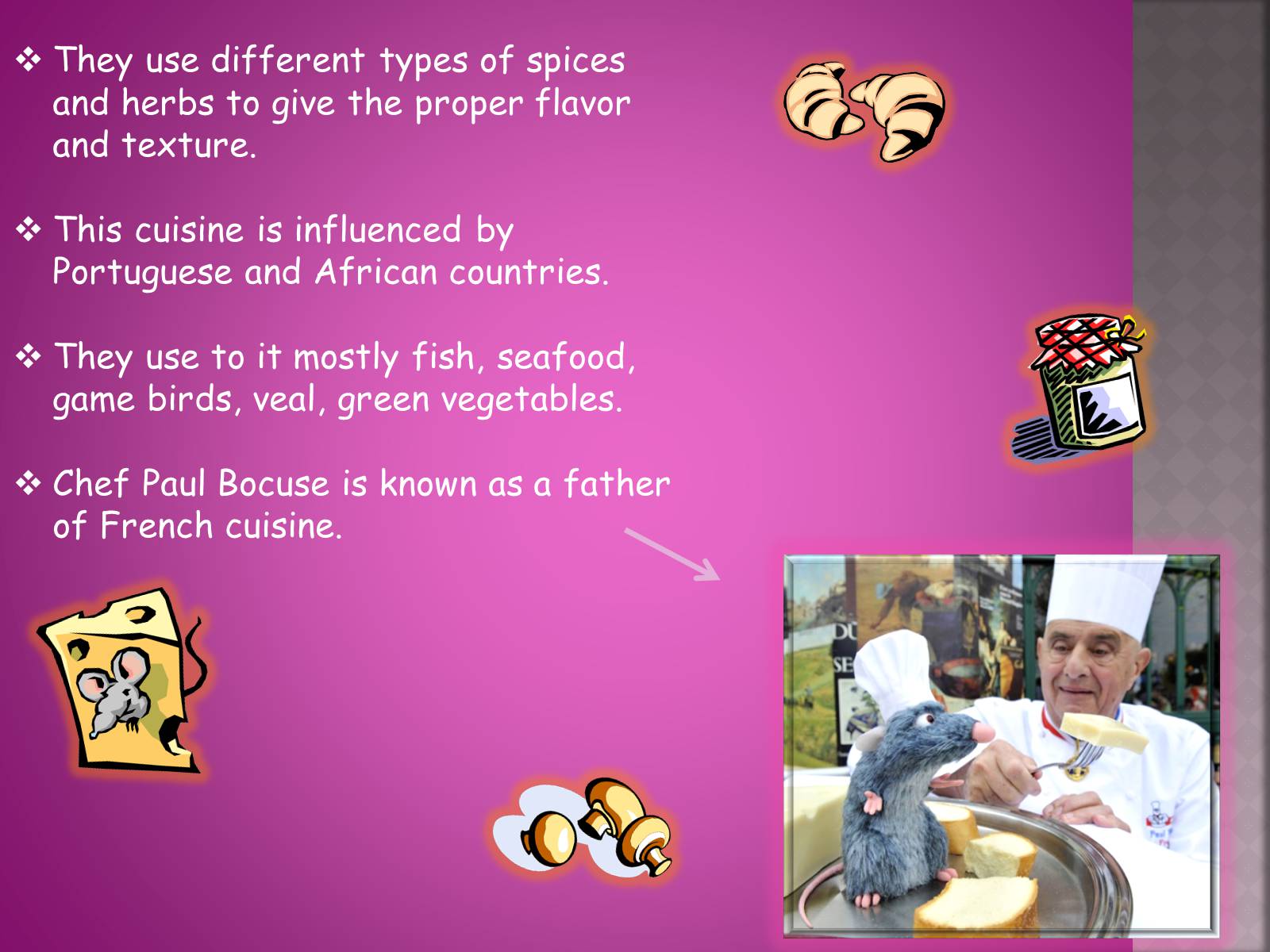
They use different types of spices and herbs to give the proper flavor and texture.
This cuisine is influenced by Portuguese and African countries.
They use to it mostly fish, seafood, game birds, veal, green vegetables.
Chef Paul Bocuse is known as a father of French cuisine.
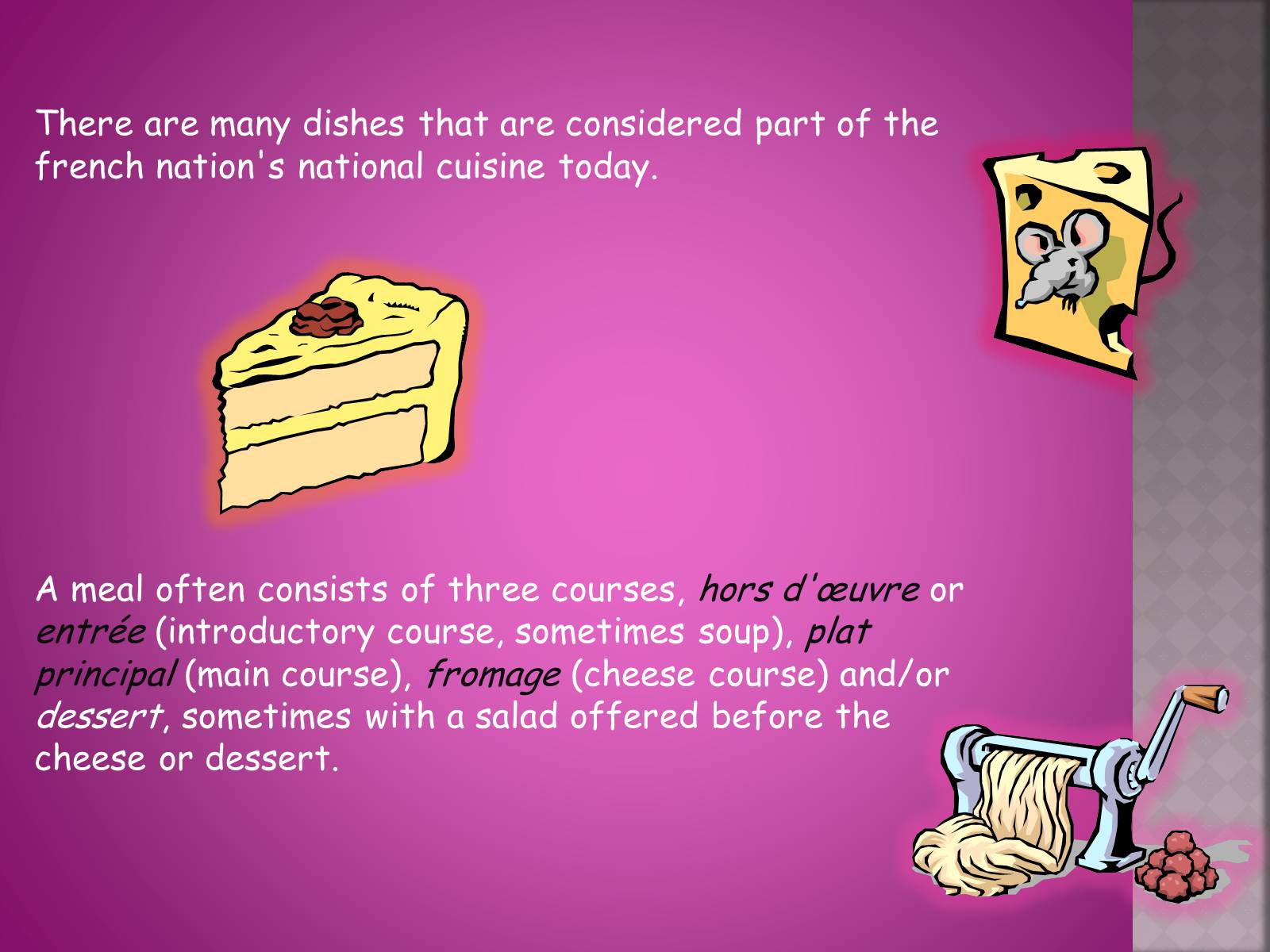
There are many dishes that are considered part of the french nation's national cuisine today.
A meal often consists of three courses, hors d'œuvre or entrée (introductory course, sometimes soup), plat principal (main course), fromage (cheese course) and/or dessert, sometimes with a salad offered before the cheese or dessert.
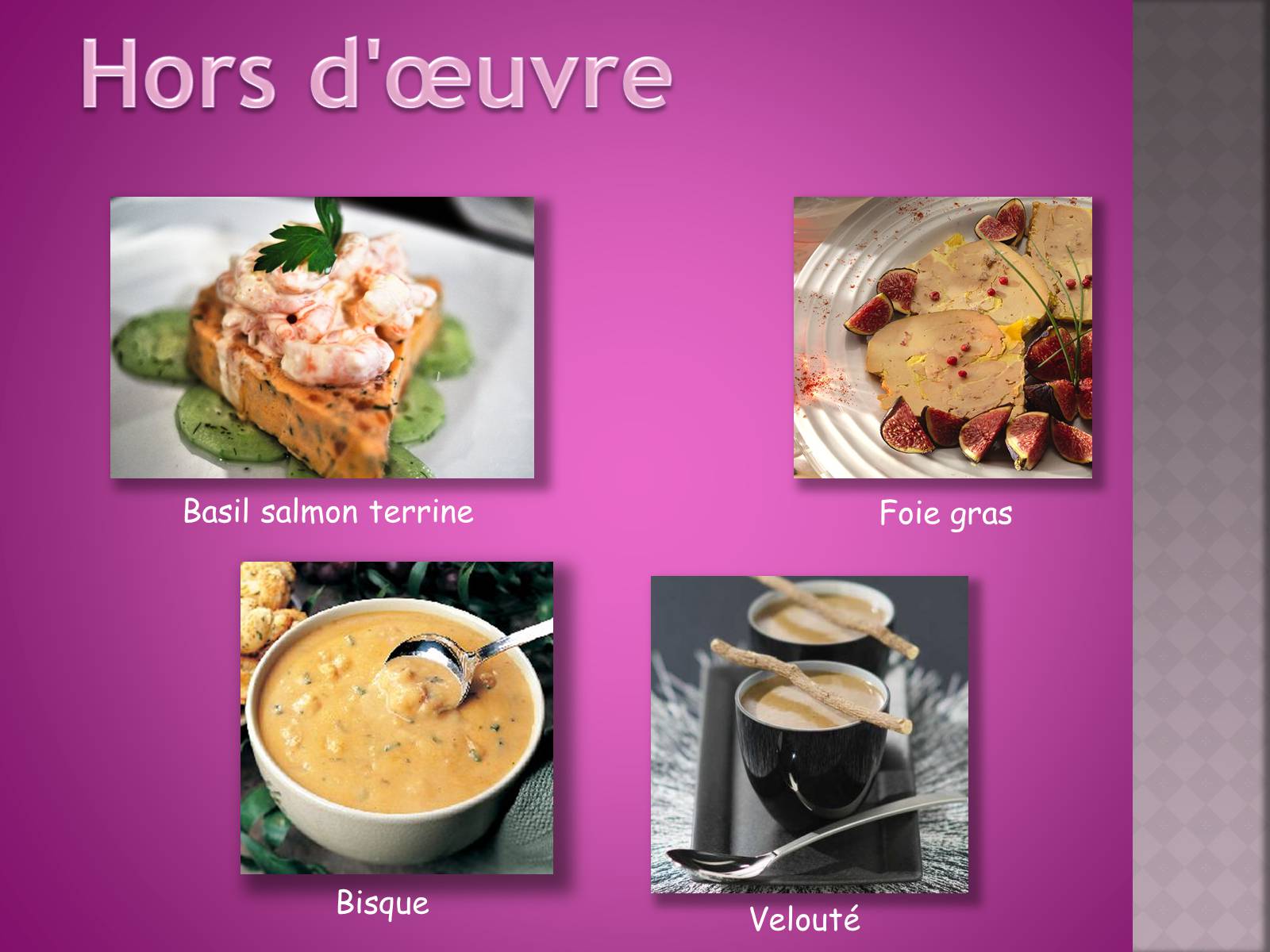
Hors d'œuvre
Basil salmon terrine
Bisque
Foie gras
Velouté
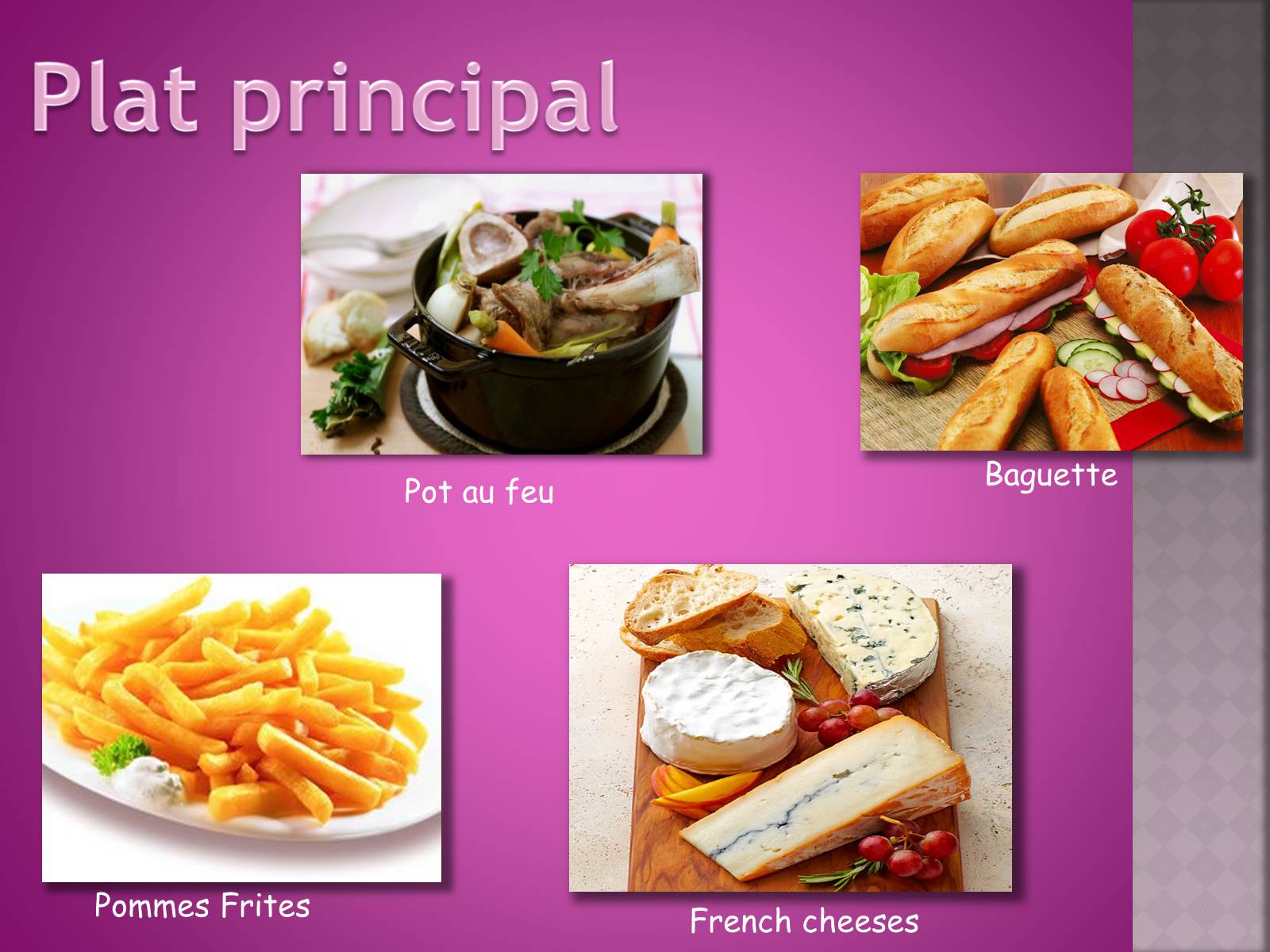
Plat principal
Pot au feu
Pommes Frites
Baguette
French cheeses
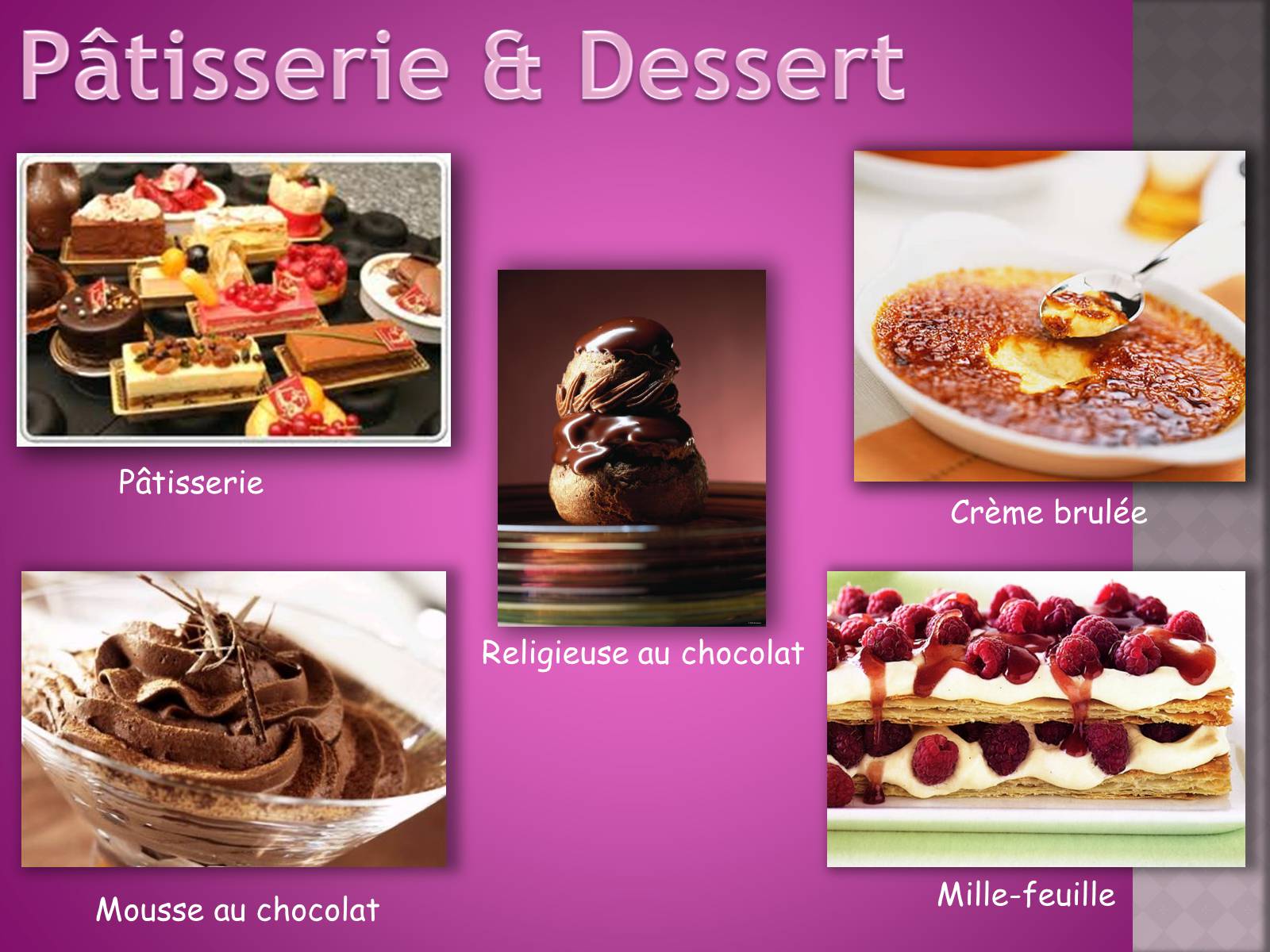
Pâtisserie & Dessert
Pâtisserie
Mousse au chocolat
Crème brulée
Religieuse au chocolat
Mille-feuille
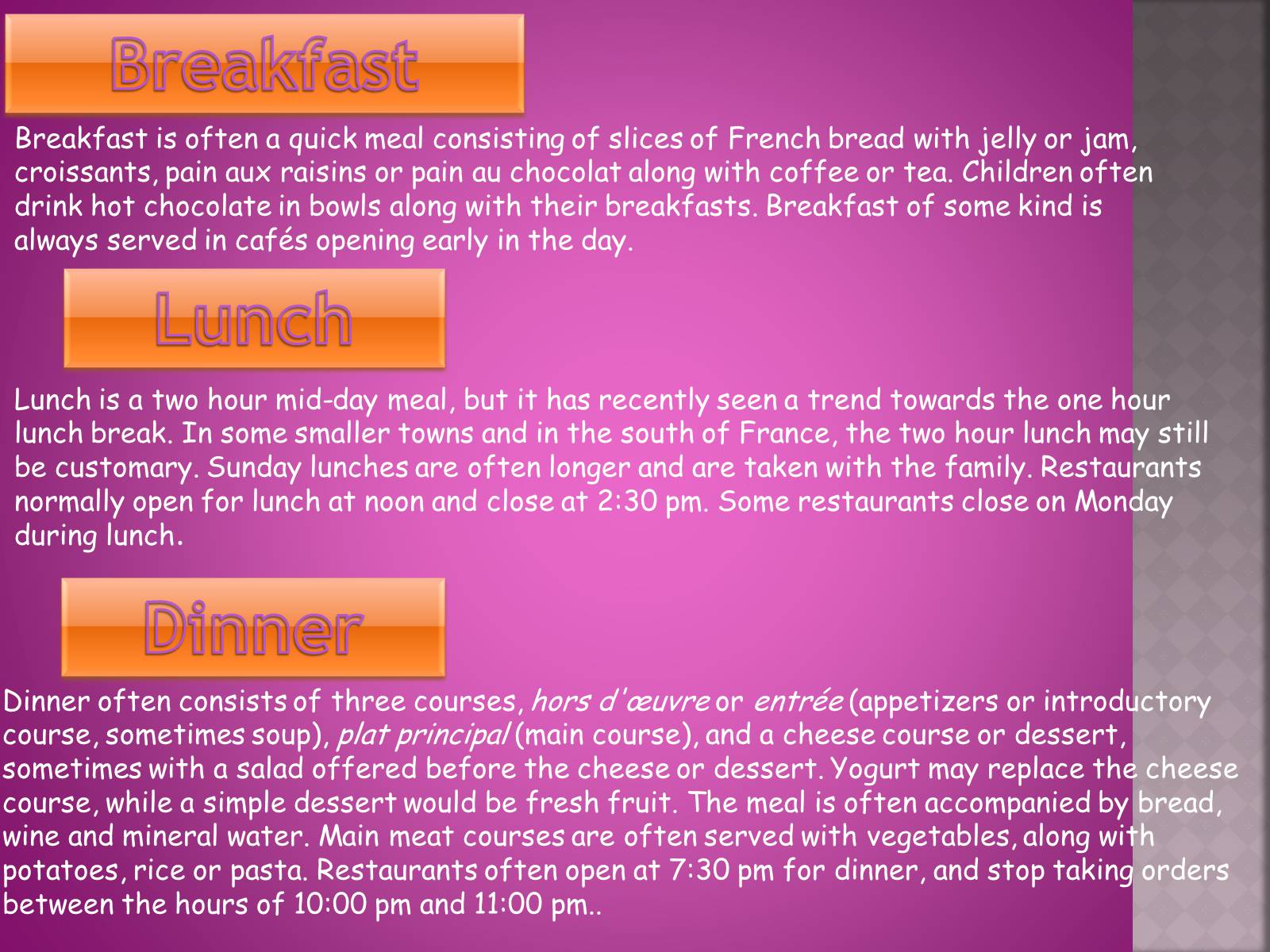
Breakfast
Breakfast is often a quick meal consisting of slices of French bread with jelly or jam, croissants, pain aux raisins or pain au chocolat along with coffee or tea. Children often drink hot chocolate in bowls along with their breakfasts. Breakfast of some kind is always served in cafés opening early in the day.
Lunch
Lunch is a two hour mid-day meal, but it has recently seen a trend towards the one hour lunch break. In some smaller towns and in the south of France, the two hour lunch may still be customary. Sunday lunches are often longer and are taken with the family. Restaurants normally open for lunch at noon and close at 2:30 pm. Some restaurants close on Monday during lunch.
Dinner
Dinner often consists of three courses, hors d'œuvre or entrée (appetizers or introductory course, sometimes soup), plat principal (main course), and a cheese course or dessert, sometimes with a salad offered before the cheese or dessert. Yogurt may replace the cheese course, while a simple dessert would be fresh fruit. The meal is often accompanied by bread, wine and mineral water. Main meat courses are often served with vegetables, along with potatoes, rice or pasta. Restaurants often open at 7:30 pm for dinner, and stop taking orders between the hours of 10:00 pm and 11:00 pm..
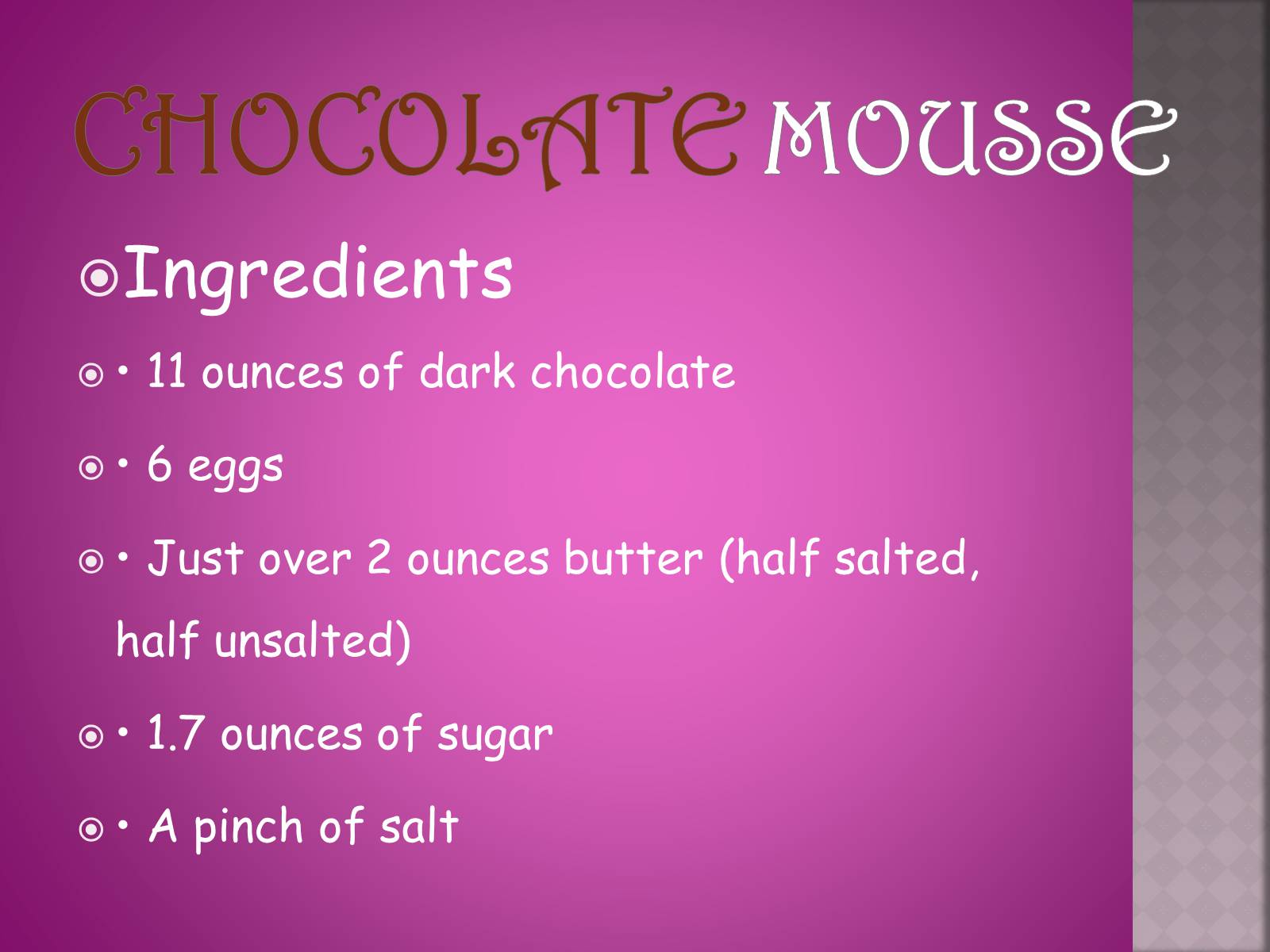
Chocolate mousse
Ingredients
• 11 ounces of dark chocolate
• 6 eggs
• Just over 2 ounces butter (half salted, half unsalted)
• 1.7 ounces of sugar
• A pinch of salt
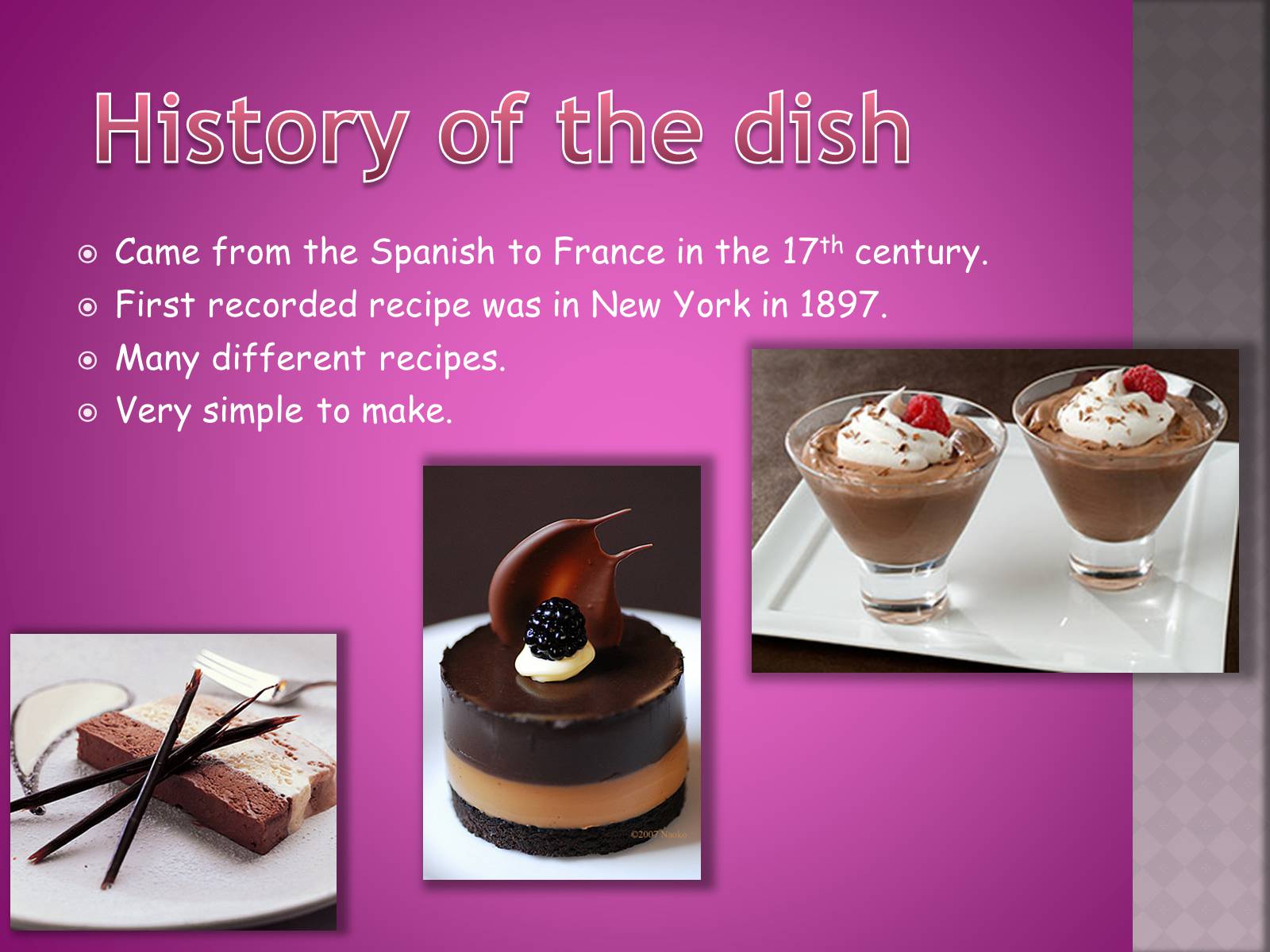
Came from the Spanish to France in the 17th century.
First recorded recipe was in New York in 1897.
Many different recipes.
Very simple to make.
History of the dish
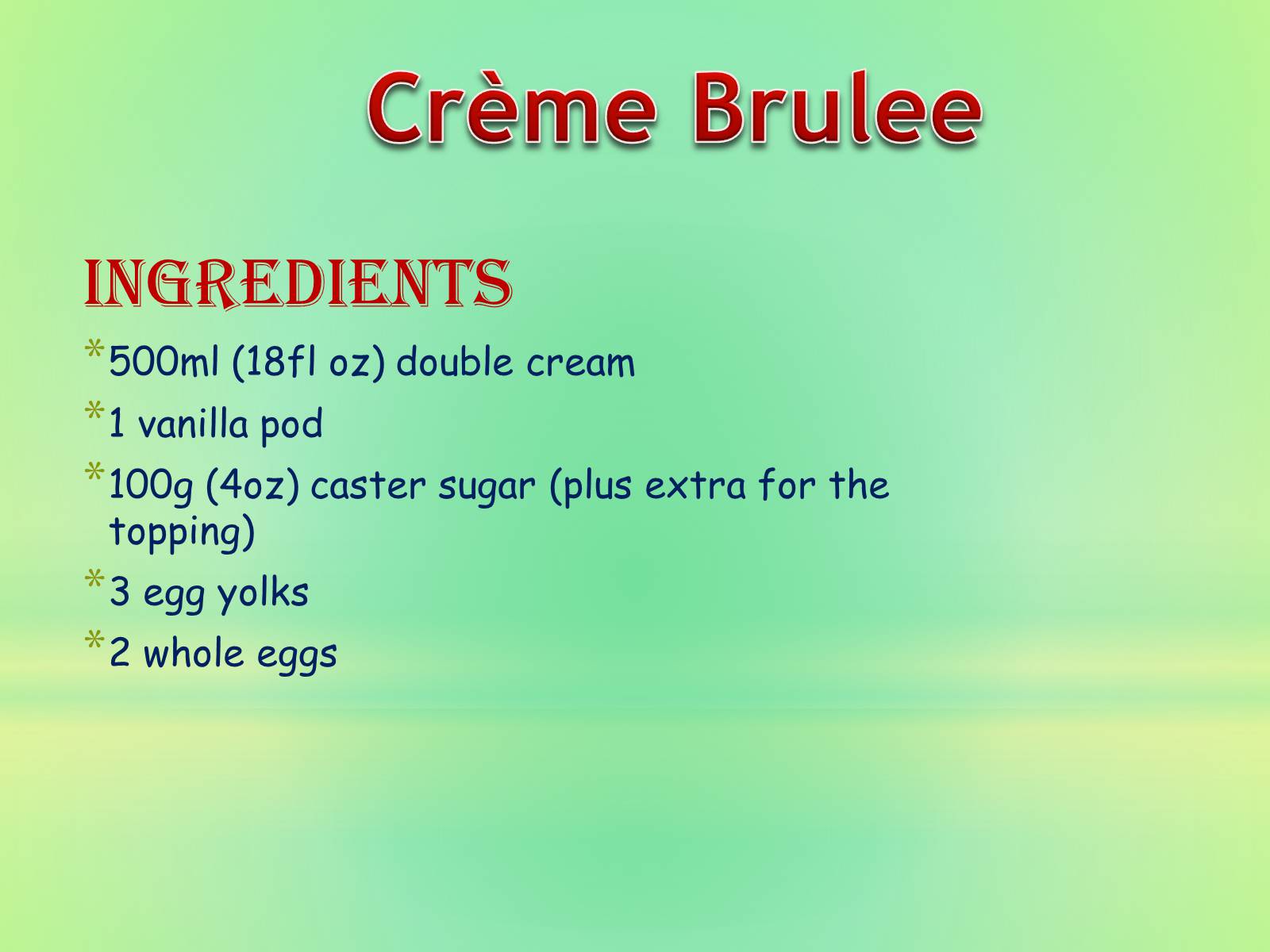
Ingredients
500ml (18fl oz) double cream
1 vanilla pod
100g (4oz) caster sugar (plus extra for the topping)
3 egg yolks
2 whole eggs
Crème Brulee
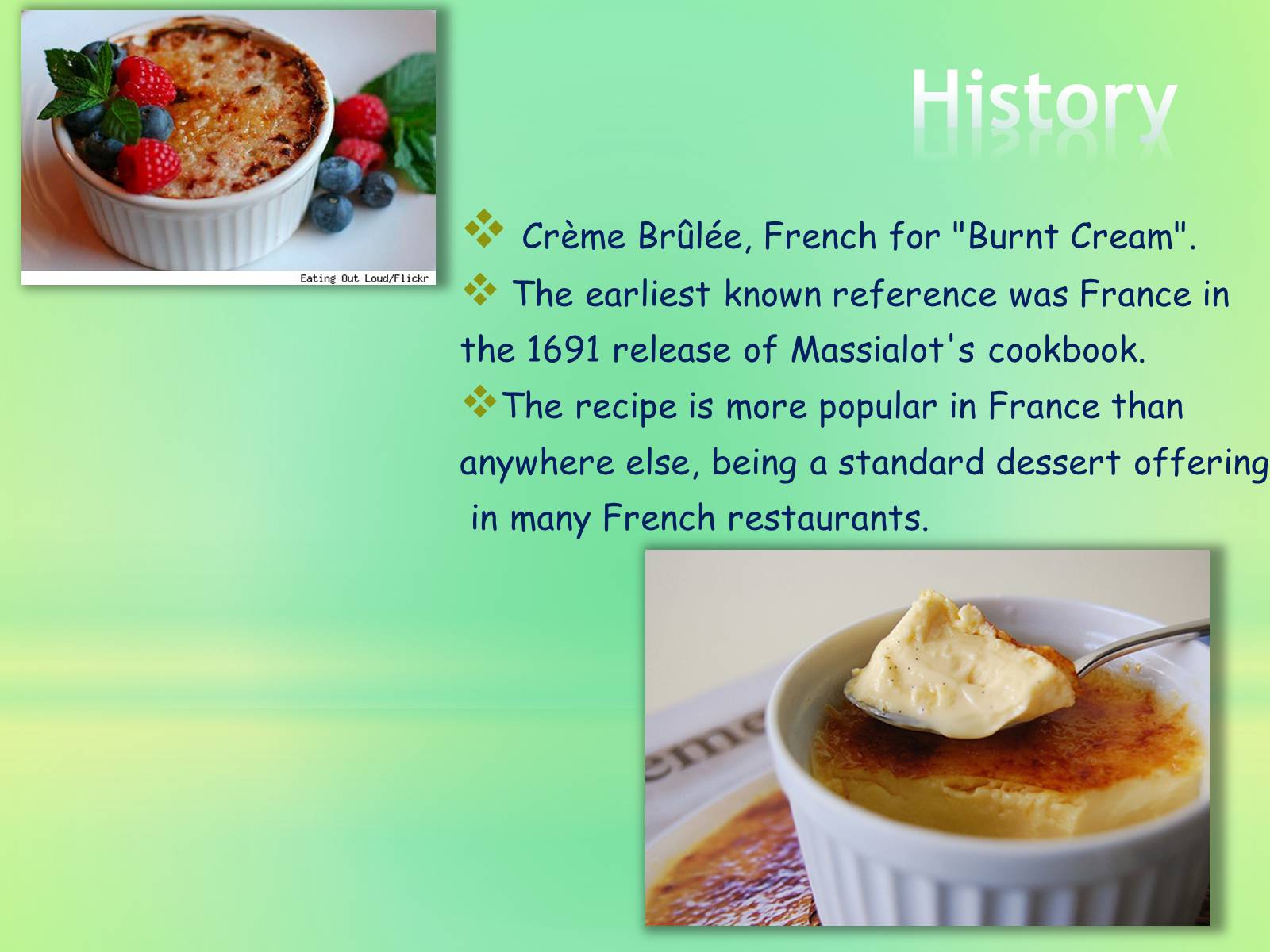
History
Crème Brûlée, French for "Burnt Cream".
The earliest known reference was France in
the 1691 release of Massialot's cookbook.
The recipe is more popular in France than
anywhere else, being a standard dessert offering
in many French restaurants.